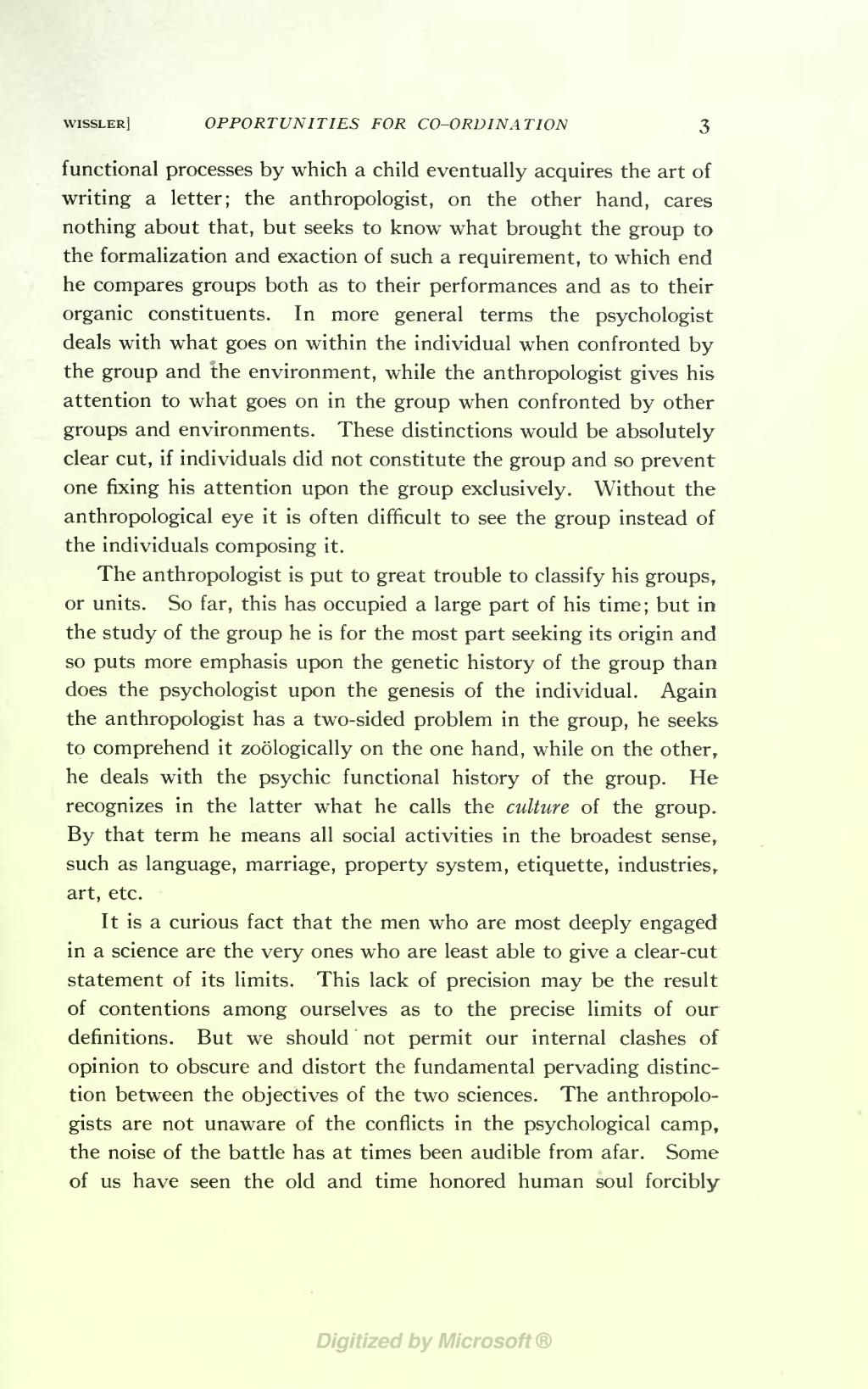WISSLER] OPPORTUNITIES FOR CO-ORDINATION 3
functional processes by which a child eventually acquires the art of writing a letter; the anthropologist, on the other hand, cares nothing about that, but seeks to know what brought the group to the formalization and exaction of such a requirement, to which end he compares groups both as to their performances and as to their organic constituents. In more general terms the psychologist deals with what goes on within the individual when confronted by the group and the environment, while the anthropologist gives his attention to what goes on in the group when confronted by other groups and environments. These distinctions would be absolutely clear cut, if individuals did not constitute the group and so prevent one fixing his attention upon the group exclusively. Without the anthropological eye it is often difficult to see the group instead of the individuals composing it.
The anthropologist is put to great trouble to classify his groups, or units. So far, this has occupied a large part of his time; but in the study of the group he is for the most part seeking its origin and so puts more emphasis upon the genetic history of the group than does the psychologist upon the genesis of the individual. Again the anthropologist has a two-sided problem in the group, he seeks to comprehend it zoologically on the one hand, while on the other r he deals with the psychic functional history of the group. He recognizes in the latter what he calls the culture of the group, By that term he means all social activities in the broadest sense,, such as language, marriage, property system, etiquette, industries, art, etc.
It is a curious fact that the men who are most deeply engaged in a science are the very ones who are least able to give a clear-cut statement of its limits. This lack of precision may be the result of contentions among ourselves as to the precise limits of our definitions. But we should not permit our internal clashes of opinion to obscure and distort the fundamental pervading distinc- tion between the objectives of the two sciences. The anthropolo- gists are not unaware of the conflicts in the psychological camp, the noise of the battle has at times been audible from afar. Some of us have seen the old and time honored human soul forcibly
�� �
